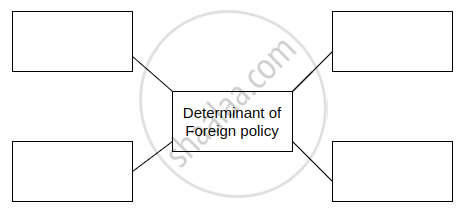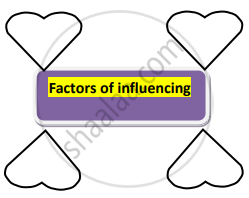Topics
The World since 1991
Key Concepts and Issues since 1991: Globalisation
Key Concepts and Issues since 1991: Humanitarian Issues
Contemporary India: Challenges to Peace, Stability and National Integration
Contemporary India: Good Governance
India and the World
Notes
Factors Influencing Indian Foreign Policy:
1) Geography:
Its vast coastline in the South and the presence of Himalayan mountain ranges to the north and the northeast have shaped India’s attitude towards foreign and security policy. Similarly, the presence of a large country like China across almost the entire north and north-eastern border also affects India’s foreign policy. The unique geography of South Asia-while all neighbouring countries share a border with India, none share a border with each other-shapes the foreign policy too. India holds a dominant position in the Indian Ocean. It has an extensive coast line with Lakshdweep Islands in the west and Andaman and Nicobar Islands in the East.
2) History:
This includes the impact of India’s traditional cultural values, such as peace and co-existence. It also includes the influence of historical cultural ties with the neighbouring civilisations in West, Central and Southeast Asia on India’s foreign policy. Some of the basic values of Indian foreign policy like anti- colonialism and anti-racialism were laid during the freedom struggle.
3) Economy:
The policy of Non-Alignment has a political, economic and strategic context. There was a strong urge to come out of poverty and backwardness that had emerged from the colonial period. India also refused to accept financial aid from various donor countries, if it came with conditions unacceptable to India. The policy of import-substitution and giving importance to public sector enterprises had a tremendous impact on India’s foreign policy. Many fundamental changes have occurred in foreign policy of India after adopting the policy of Liberalisation, Privatisation and Globalisation in the post 1991 era.
4) Polity:
The Executive organ of Government plays an important role in making and implementing the foreign policy in India. Parliament plays the role of watchdog. Political leadership makes significant impact on foreign relations of India. Prime Ministers Jawaharlal Nehru, Lal Bahadur Shastri, Indira Gandhi, Rajiv Gandhi, P.V. Narasimha Rao, Atal Bihari Vajpayee, Manmohan Singh and Narendra Modi played a decisive role in determining the foreign policy of India. The Ministry of External Affairs plays a pivotal role in drafting the foreign policy and giving advice to the political executive. Besides this, the National Security Advisor plays an important role in making foreign policy.
5) International System:
During the Cold War, the bipolar system and super power politics had impacted the foreign policy of India. Similarly, there were major changes in Indian foreign policy when the Cold War ended. Besides the international system, the regional system has also made a deep impact on India’s foreign policy. Thus, Indo-US dialogue in the post-cold war era, China-Pakistan dialogue since the 1960s and improved Russia-China relations since the late 1990s have influenced foreign policy.


